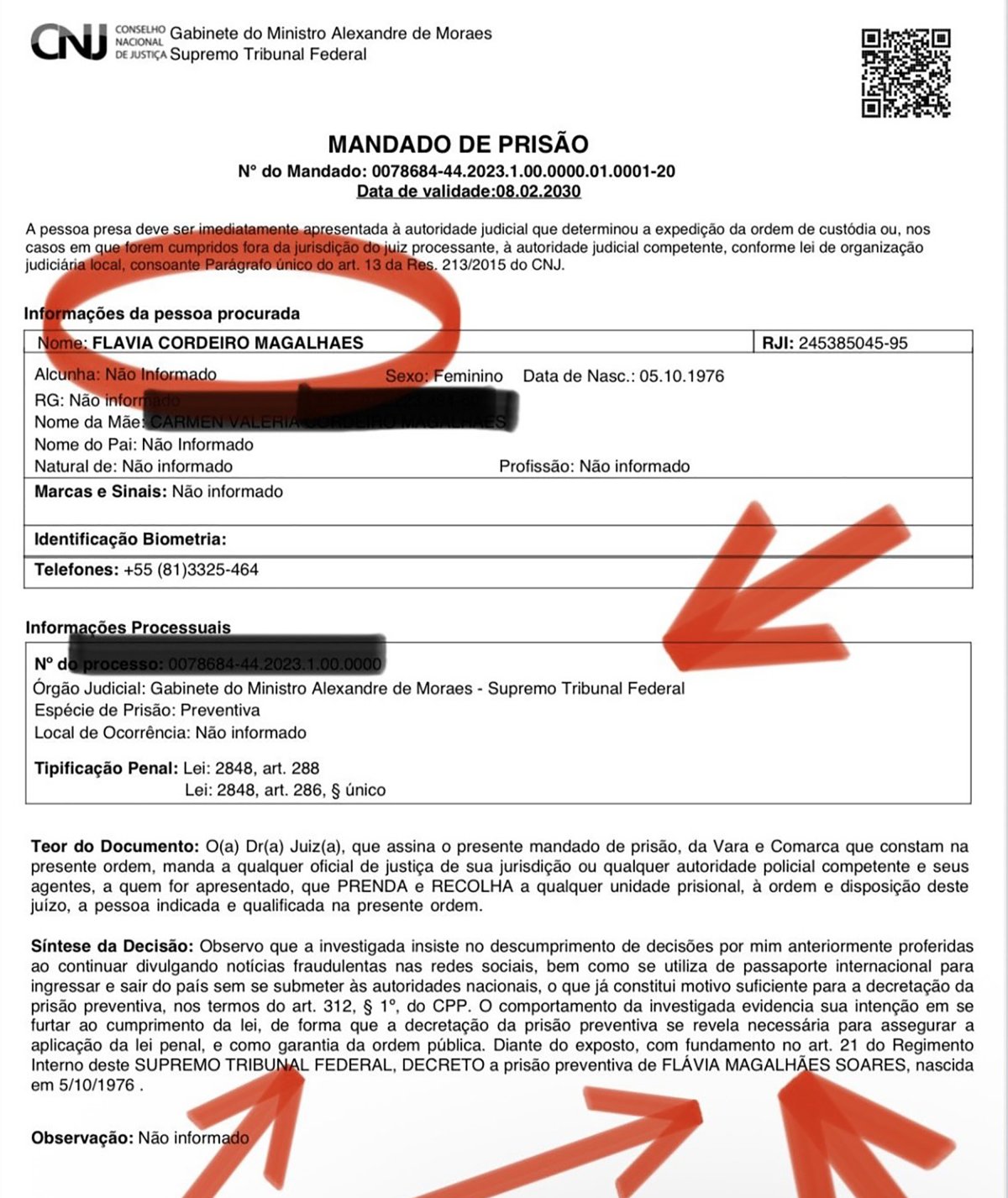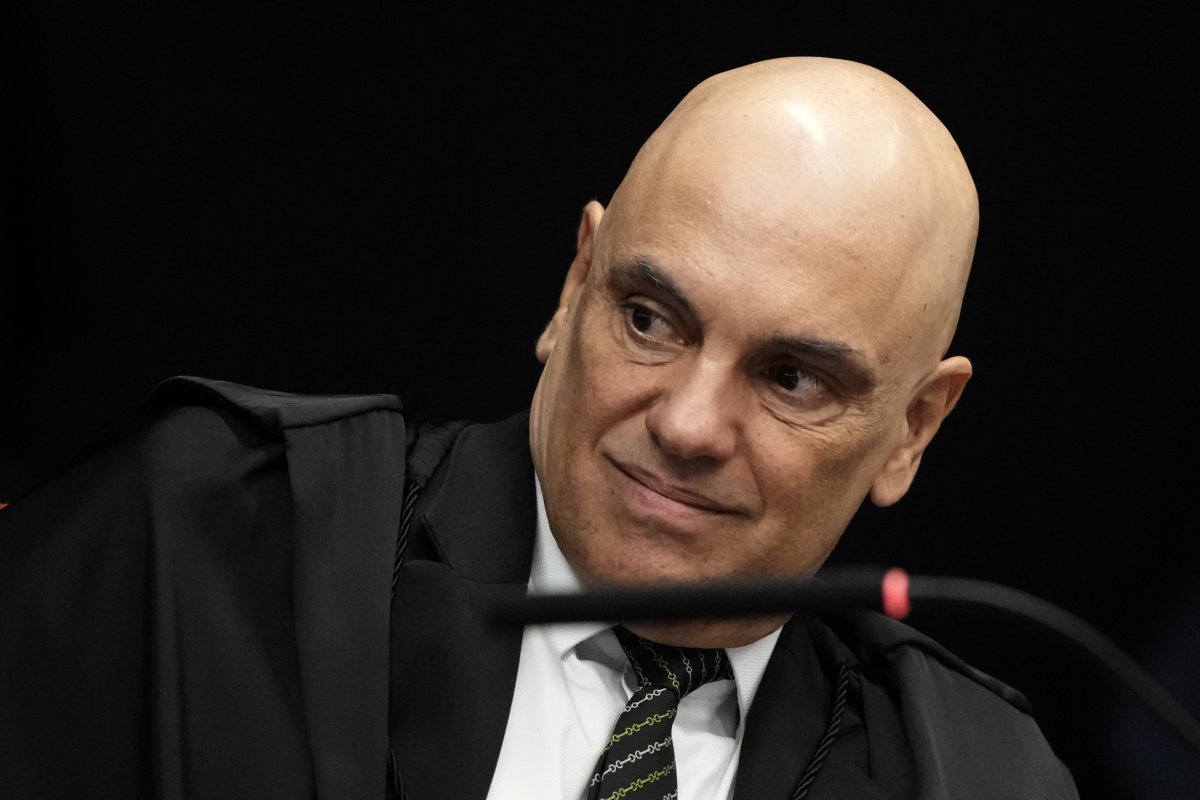A Brazilian Supreme Court justice has issued an arrest warrant for Flávia Magalhães, a naturalized U.S. citizen residing in Florida, over social media posts critical of Brazil's president and judiciary.
Her posts violated neither U.S. law nor platform rules, yet Justice Alexandre de Moraes has ordered her preventive detention "to guarantee public order."
Newsweek reached out to the U.S. Department of Justice and the Brazilian Supreme Court for comment via email outside of normal office hours on Tuesday.
Why It Matters
At stake are fundamental questions of sovereignty, speech, and precedent: whether a foreign judge can criminalize political expression made legally on U.S. soil, whether American citizens retain First Amendment protections when their online criticism targets the leaders of another country, and whether U.S. courts will allow Brazil's sweeping orders to extend across borders.
The outcome could define the extent of power foreign governments have when policing digital platforms and shape the boundaries of global free expression.

What To Know
Flávia Cordeiro Magalhães is a Brazilian-born U.S. citizen who has lived in Pompano Beach, Florida, with her 18-year-old son for the past 22 years.
The dispute arises from posts she first made in 2022 while in Florida, criticizing Brazil's judiciary.
In December 2023, after entering Brazil through Recife Airport with her U.S. passport, Magalhães alleges she was informed her Brazilian passport was under restriction and flagged as "irregular." She says Justice Moraes treated this as use of a "false passport," worsening her legal status.
In February 2024, the Brazilian Supreme Court decreed her pretrial detention. She was represented in Brazil by lawyer Paulo Faria, the same attorney who defended former congressman Daniel Silveira, a staunch ally of former Brazilian President Jair Bolsonaro.
Faria argued that Magalhães' detention was politically motivated, noting that repeated defense requests for access to the case files were denied.
Brazilian Federal Police records later confirmed that she had entered Brazil legally. Despite the Supreme Court's detention order, she managed to return to Florida in early 2024, where she currently resides.

Brazil Bans Social Media
- On August 30, 2024, Moraes ordered the suspension of Elon Musk's X platform in Brazil for failing to appoint a legal representative as required by law.
- In February 2025, Moraes ordered the suspension of Rumble, the U.S. video-sharing platform that provides the technology backbone for Truth Social, operated by Trump Media & Technology Group. The court ordered Rumble to appoint a legal representative, remove the accounts, and pay fines. When it failed to comply, Brazil's telecom regulator, Anatel, was directed to block access nationwide starting on February 22, 2025.
Throughout this period, Magalhães, who said she had never been officially notified of Moraes's orders, continued posting from Florida, criticizing Brazil's suspensions of X and Rumble, and attacking Brazilian President Luiz Inácio Lula da Silva and Moraes for censorship.
She said that her X account was blocked in Brazil by Moraes's order and that her pretrial detention was justified by alleged disobedience of secret court directives, including demands to block dissenters, preserve certain speech content, and disclose user data to Brazilian authorities.

U.S. Government Warning
The U.S. government has formally warned Brazil that foreign judicial orders have no legal force inside the United States.
At the heart of the conflict is litigation in a Florida federal court brought by Rumble Inc. and Trump Media & Technology Group challenging Moraes's orders as unconstitutional and unenforceable on U.S. soil.
In May 2025, the U.S. Department of Justice sent a letter to Moraes stating that such directives, when aimed at U.S. persons or platforms, cannot be enforced under U.S. law.
Legal and Constitutional Stakes
The First Amendment of the U.S. Constitution protects political speech from government censorship. Courts have long held that content posted by U.S. citizens on U.S. soil is protected, even if it is considered offensive. Any foreign order demanding the removal or suppression of such speech faces major constitutional hurdles.
For a foreign judicial order to bind an American company, there must typically be a formal treaty mechanism, due process, and service of process—safeguards that Rumble and Trump Media argue Moraes sidestepped.
Brazil, by contrast, empowers its judiciary to regulate speech more broadly, especially regarding what it considers disinformation or threats to democratic institutions. Moraes argues his orders are necessary to maintain public order and protect democracy.
Implications and International Tension
The case has broader implications. It may test how far foreign governments can extend their reach into the U.S. digital space. If a U.S. court rules that Brazil's orders are unconstitutional, it could set a precedent limiting extraterritorial content regulation.
In July 2025, Washington imposed sanctions on Moraes under the Global Magnitsky Act and revoked his and his family's visas, citing suppression of free expression and arbitrary judicial actions. At the same time, the U.S. levied a 50 percent tariff on Brazilian imports, explicitly linking the move to concerns over Brazil's judicial overreach.
For U.S. citizens, the case highlights the protections that exist—and where they may be lacking—when criticism of a foreign government prompts judicial action overseas.
What People Are Saying
Flávia Cordeiro Magalhães' attorney, Paulo Faria, told Revista Oeste: "I argued that she was never served with any judicial decision, but none of that had any effect."
Rumble Inc. and Trump Media & Technology Group Corp, in a court filing: "Justice Moraes has routinely issued sealed orders compelling U.S.-based online service providers to ban politically outspoken users across their entire platform, including in the United States, based on allegations of 'criminal' or 'anti-democratic speech.'"
"This case raises urgent questions: Can a foreign judge criminalize lawful speech made in America? What protections do U.S. citizens have when their online criticism of foreign governments sparks overseas prosecutions? What precedent does this set for global digital expression?"
What Happens Next
In Florida, Judge Mary S. Scriven will decide whether U.S. constitutional protections shield Magalhães and similarly situated individuals and platforms from foreign judicial orders, a ruling likely to be appealed and possibly headed for the Supreme Court.
At the same time, Washington is weighing further diplomatic steps after warning Brazil that such directives violate U.S. law, while platforms like Truth Social must choose whether to defy or partially comply with foreign demands.
.png)


